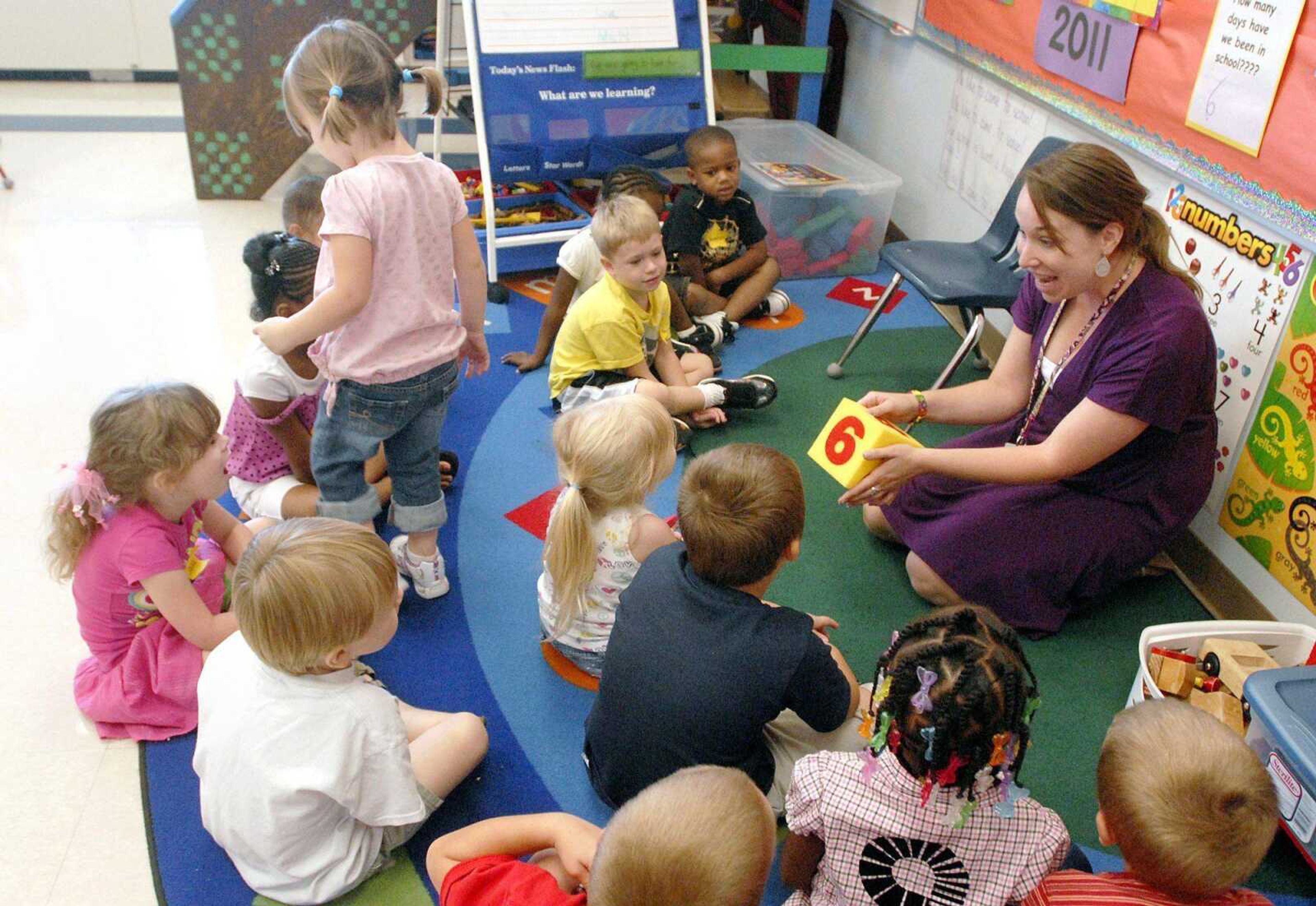Missouri preparing to apply for millions of dollars in early learning grant
Improved access to early education in Missouri and other states could come soon in the form of federal grants, but only if the states can show efforts to improve on their own. States are now preparing applications for $500 million in Race to the Top's Early Learning Challenge grants, which according to the U.S. ...
Improved access to early education in Missouri and other states could come soon in the form of federal grants, but only if the states can show efforts to improve on their own.
States are now preparing applications for $500 million in Race to the Top's Early Learning Challenge grants, which according to the U.S. Department of Education will reward states that create comprehensive plans to transform early learning systems with better coordination, clearer learning standards and workforce development.
The stakes are high -- $60 million over the next four years for Missouri. In 2010, the state applied for phase one of Race to the Top but did not receive a grant to fund an initiative to develop a model curriculum.
The model would have focused on identification of best instruction practices, development of models for educator evaluation to include student performance, assistance for struggling districts and schools, and providing better data collection to foster student achievement. The Missouri Department of Elementary and Secondary Education has said that despite not receiving grants, the state is still developing the model.
The Early Learning Challenge grants are phase two of Race to the Top and focus on improving and expanding programs that cater to the youngest students.
Kathy Thornburg, assistant commissioner for the Office of Early and Extended Learning for DESE, said if Missouri were to receive the grants this year, the state could continue work on its data assessment and find ways to allow more children from low-income families to attend high-quality early learning programs.
Missouri is at a disadvantage, though. Many other states can already prove they are making strides toward education reform, which the U.S. Department of Education wants to see when it decides which states will receive grant money.
"The rubric for assessing the application actually gives the states who are already involved in doing some of these things an advantage," Thornburg said. "That's a little bit of a discouraging point to me."
While Missouri can show it is leading states in data assessment systems, Thornburg is unsure how the state will compare to others that have shown higher financial expenditures in early learning. She said the state has made a lot of positive moves in that area, but they haven't been organized into a system and therefore haven't been documented.
Grants from the competition could mean funding in areas where there have been cuts to programs recently. Thornburg said the grants might fund parent education programs including Parents As Teachers, as well as comprehensive services and health and nutrition education in addition to improving early learning programs.
When and if the state receives the funding, it will then determine how individual districts can apply for it.
Deena Ring, the Cape Girardeau School District's director of special services, said if the state were to win the grants and the district could benefit, she would foremost like to see preschool expanded to every elementary school. Currently, the preschool programs rotate through elementary schools. Blanchard, Clippard and Jefferson elementary schools host preschool programs now.
Parents As Teachers could also use the help, Ring said, because districts are having to spend more money to keep programs going, money they really don't have.
Ring said it's disappointing the state doesn't seem to show more support for early childhood education.
Grant applications are required to be completed by Oct. 19. On Aug. 5, officials from four state departments, private community-based groups and statewide organizations from throughout the state met to discuss the state's plan to apply.
States that win the grants will have their funding released by Dec. 31.
eragan@semissourian.com
388-3627
Pertinent address:
Connect with the Southeast Missourian Newsroom:
For corrections to this story or other insights for the editor, click here. To submit a letter to the editor, click here. To learn about the Southeast Missourian’s AI Policy, click here.










